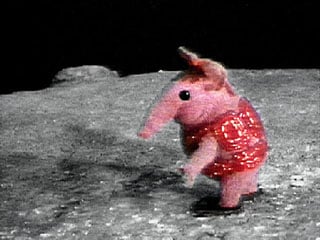“The Internet is becoming more and more widespread and will increasingly represent a scientific random sample of the population”
– Joi Ito
“Igor, to the machines – we have a sample”
One thing seems to have been forgotten following AOL’s careless, but quite magnificent data dump of the internet’s “hive mind” at play this week.
AOL’s assiduous documentation of the private thoughts of over 600,000 web searchers has certainly added some much needed sparkle to a public internet that of late, has been in dire need of a tonic. Now, internet users’ most private thoughts are revealed, in all their banality and creepiness, and we must count ourselves fortunate.
“AOL’s data sketch sometimes scary picture of personalities searching Net,” was the headline USA Today newspaper chose, but this barely conveyed the voyeuristic frisson, or glee we felt as the AOL database made its way across the net.
Nothing in recent months has made the net come alive quite like these queries, and it’s not hard to see why. Recently, the net has been drowning in banality. Billions of identical blogs – some human generated, some machine generated – spring up every day, with identical opinions to match the identical templates each blog hoster seems to provide. This outpouring of new recorded writing has been trumpeted as a new era in human expression. But the truth is, in practice, the consequence of all this is that it’s getting increasingly difficult to tell which is which. Human, or machine?
But let’s focus on an aspect lost in the “scandal”. The thing that everyone has overlooked is that this wasn’t an accidental or negligent data loss by AOL. The search query data was sincerely released in the name of science.
Boffins at AOL Labs published the data for boffins at similar “labs” to peruse.
That’s strange enough in itself, and it should make you yearn for white-coated frontiersmen of yore. Things have changed a bit since then and now.
Behold: the Mighty Atom
Fifty years ago, scientists did things like, oh… split the atom, and deduce the shape of the DNA double helix. Today, working off the hottest and freshest evidence available, scientists proclaim breakthroughs such as “People get more drunk at weekends”.
Once upon a time scientists set out to describe the unknown, and make it understood in
mechanical terms. But now, like a group of well meaning, but slightly simple lifelong in-patients making their first tentative steps into the real world, they venture out to find what’s on their doorsteps.
Now, if science is to have any useful purpose in society, it’s in describing the unknown, not the bleeding obvious. No wonder it has gotten such a bad name recently.
Read more


